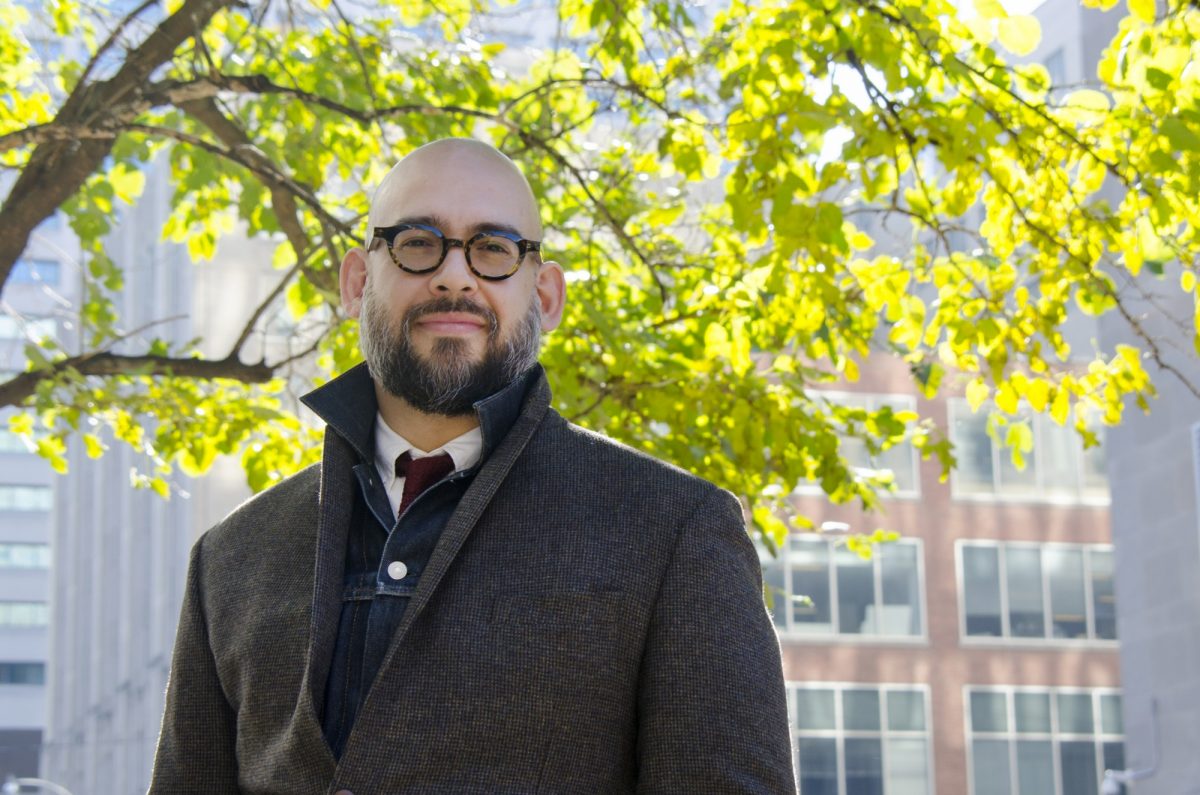
It’s time for Canada to make access to dental care more equitable, says alumnus Dr. Carlos Quiñonez. // PHOTO BY JEFF COMBER
Open wide for equity
Most Canadians take pride in their universal health-care system and don’t think of it as excluding anyone.
But what about dental care?
UM alumnus Carlos Quiñonez [DMD/98, M.Sc./04] says few Canadians realize how poorly this country ranks in terms of providing government-funded dental care to people who can’t afford it, such as lower-income seniors and the working poor.
“About five cents of every dental-care dollar spent in Canada is financed by government,” says Quiñonez, associate professor and director of the graduate program in dental public health at the University of Toronto (U of T).
“In the U.S. it’s 10 to 11 cents per dollar. In Germany it’s about 60 cents. In Japan it’s 75 cents. We’re a complete outlier internationally. We’re almost at the bottom among OECD nations.”
Quiñonez is a leading Canadian advocate for dental policy reform. His research centres on the politics and economics of dentistry. He says that after decades of analysis and discussion, it’s time for Canada to introduce a national dental plan to make access more equitable.
“The writing’s on the wall,” he says. “It’s just a matter of figuring out how to achieve the change.”
Quiñonez was born in El Salvador. When he was a young child, he and his family fled the political situation there and arrived in Ontario as refugees. His father, pathologist Dr. Guillermo Quiñonez, was later appointed to the UM medical faculty, and the family settled in Winnipeg when Carlos was 12.
When he graduated from UM as a dentist at age 23, Quiñonez recalls, he was immature and unsure of his path. Mentors steered him toward community dentistry.
Providing care to underserved populations for two years inspired him to pursue a master’s degree at UM in community health sciences. Professors Joe and Patricia Kaufert particularly influenced his passion for analyzing dentistry through a social-science lens.
His self-described “wild idea” of taking a deep dive into the political economy of dentistry led him to earn his PhD and dental specialty in 2009 at U of T, which offers Canada’s only graduate program in dental public health. He now leads the program.
Quiñonez has extensively studied cost as a barrier to accessing dental care. One of his studies, published this year in the Journal of the American Dental Association, revealed that in Canada, the gap in dental visits between rich and poor is actually shrinking.
That finding surprised Quiñonez. But he says it ties in with other studies he has done, showing that the cultural value placed on straight white teeth is at an all-time high, and that people will make sacrifices to pay for dental care.
“We’ve demonstrated that working poor families will not buy food in order to get the dental care they need. It makes sense, because stained, broken and missing teeth are a ‘tell’ with respect to socioeconomic position. Teeth are very closely tied to people’s dignity.”
In 2018, Quiñonez oversaw a study showing that dentists who feel more financial pressure (for instance, to pay off loans) and dentists who see themselves more as business people than as health-care providers tend to recommend more costly treatments to patients.
Although he is concerned that Canadian dentistry is becoming more competitive and profit-driven, Quiñonez says it’s encouraging that the profession’s social responsibility to the public is being widely discussed and recognized.
“The raison d’être of a profession is to meet the needs of the society, not just the tooth-straightening and tooth-whitening desires of individuals,” he says.
“Dentists have an incredible feeling of responsibility to their patients, but they don’t necessarily feel that same sense of obligation to society – we have quantified this.
“Dental education is where the culture begins, and that’s where the culture can change. We need to have a much richer discussion, from Day 1, with dental students about their professional responsibilities.”






